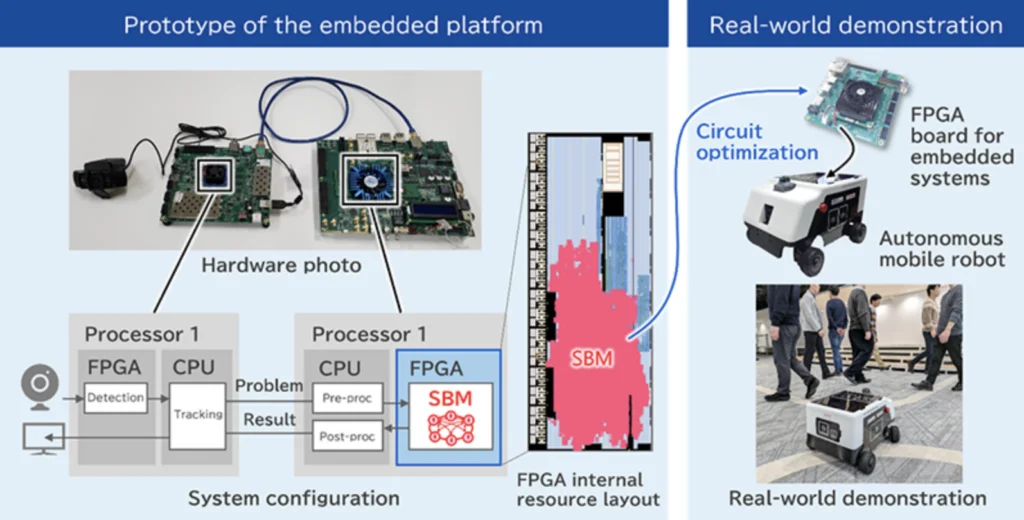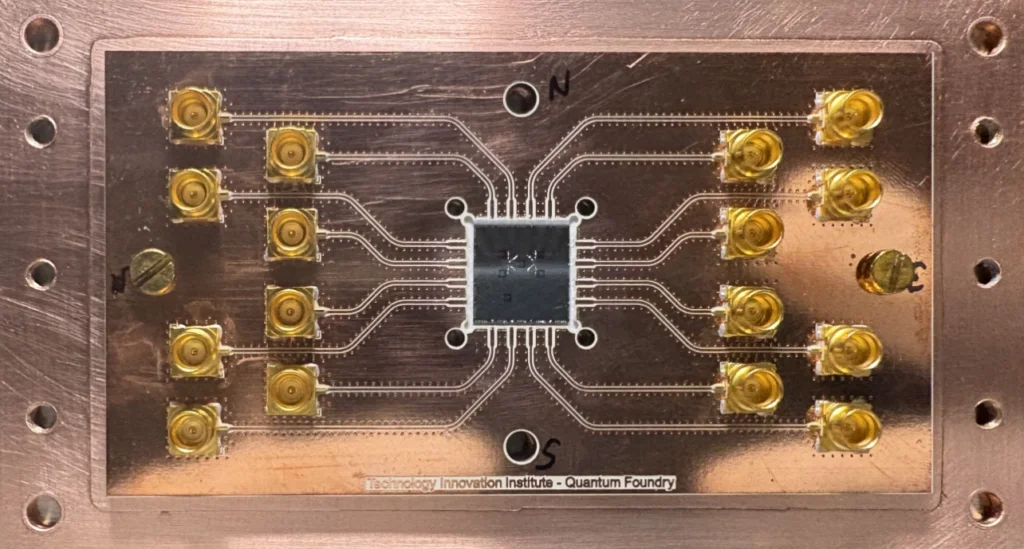Insider Brief
- Norma, a quantum computing company, has validated the performance of quantum AI algorithms using NVIDIA CUDA-Q.
- By running these algorithms for drug development on CUDA-Q, Norma observed computational speeds up to 73 times faster.
- The company has secured use cases for quantum AI in drug development and plans to expand validation efforts into various fields.
Quantum computing company Norma (CEO Hyunchul Jung, www.norma.co.kr) has achieved over 73× faster performance in drug development by running its quantum AI algorithm on NVIDIA GH200 Grace Hopper Superchips.
Norma recently tested and validated the performance of its self-developed quantum AI algorithms on the NVIDIA CUDA-Q platform. CUDA-Q simplifies the integration of GPUs and QPUs and supports quantum-classical hybrid operations, serving as a core technology to accelerate the development and execution of quantum algorithms. Norma is independently developing quantum AI algorithms applicable across sectors such as biotechnology, defense, and finance.
The company is currently running projects to execute these algorithms in the CUDA-Q environment and validate their performance.

The project was launched as part of a joint research effort with Kyung Hee University Hospital at Gangdong, aimed at discovering novel drug candidates. Due to the vastness of the chemical search space, traditional AI approaches encounter computational limitations in drug discovery. To overcome this, Norma’s Quantum AI team has been developing algorithms such as QLSTM, QGAN, and QCBM. These algorithms are typically trained and evaluated using various quantum simulators. In this latest test, NVIDIA CUDA-Q demonstrated significantly superior computational performance compared to other simulators.
Norma used the CUDA-Q environment with NVIDIA H200 GPUs and NVIDIA GH200 to test its quantum AI algorithms for drug development. The results showed that NVIDIA CUDA-Q significantly outperformed traditional CPU-based methods. Specifically, the execution and measurement (forward propagation) of an 18-qubit quantum circuit were approximately 60.14 to 73.32 times faster, while the loss function-based correction process (backward propagation) was about 33.69 to 41.56 times faster.
Comparisons between the H200 and GH200 yielded similar performance, with the GH200 demonstrating forward propagation times 22% shorter and backward propagation times 24% shorter than those of the H200.
By enabling fast and realistic verification of algorithms prior to deployment on actual quantum hardware, the project significantly reduced development costs and time while enhancing optimization potential. It is particularly meaningful in that it demonstrated the practical applicability of quantum AI technology in drug discovery, providing valuable data to support the future adoption of quantum hardware across diverse fields.
Hyunchul Jung, CEO of Norma, stated, “This project is a meaningful example of collaboration between domestic and international quantum technology companies and hospitals, showcasing the practical potential of quantum technologies.” He added, “Through active technological cooperation with NVIDIA, we plan to continuously expand performance testing of quantum AI algorithms across a wide range of sectors, like healthcare.”















